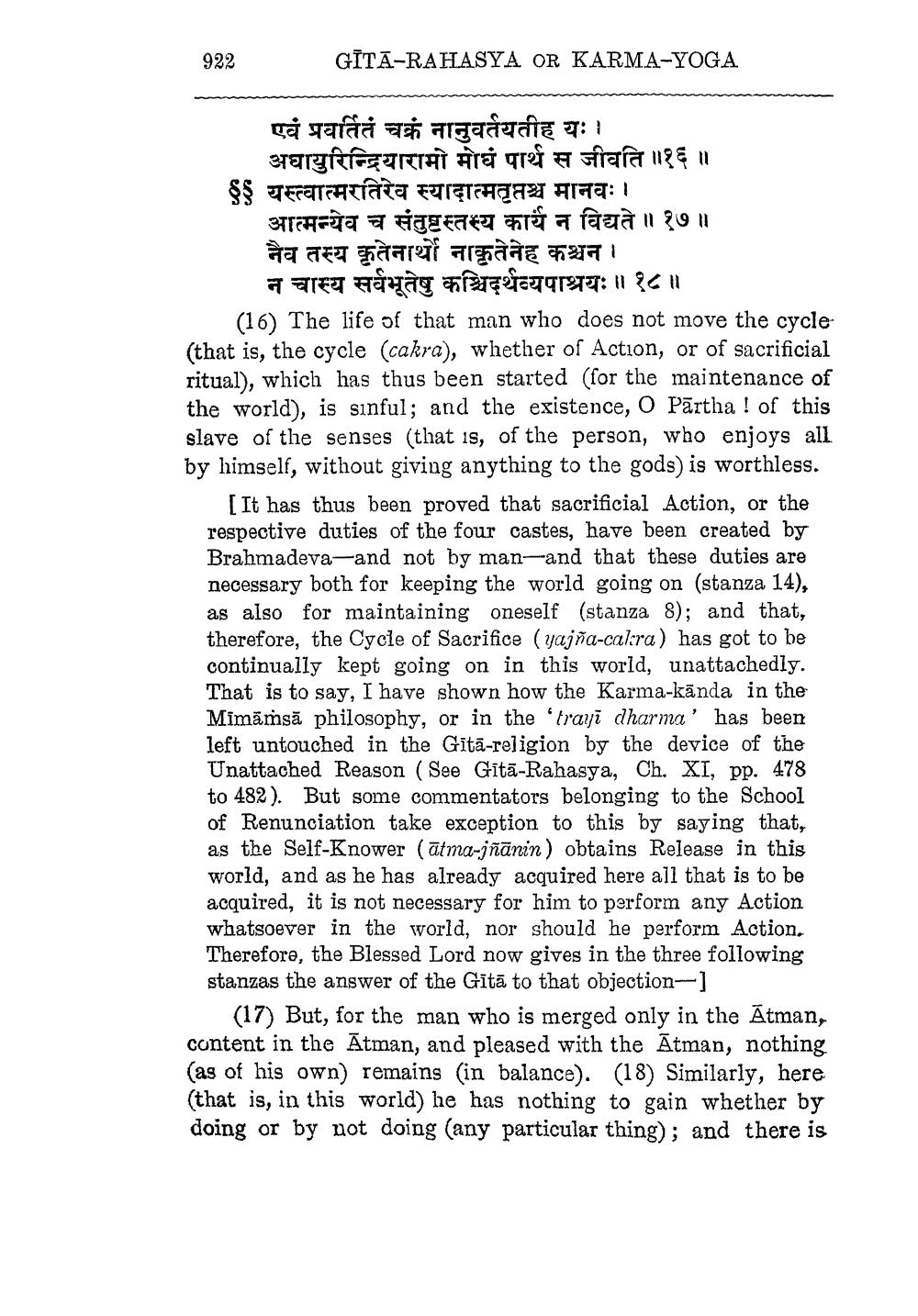________________
922
GĪTĀ-RAHASYA OR KARMA-YOGA
एवं प्रवर्तितं चक्रं नानुवर्तयतीह यः।
अघायुरिन्द्रियारामो मोघं पार्थ स जीवति ॥१६॥ $ यस्त्वात्मरतिरेव स्यादात्मतृप्तश्च मानवः।
आत्मन्येव च संतुष्टस्तस्य कार्य न विद्यते ॥१७॥ नैव तस्य कृतेनार्थो नाकृतेनेह कश्चन । न चास्य सर्वभूतेषु कश्चिदर्थव्यपाश्रयः॥१८॥
The life of that man who does not move the cycle (that is, the cycle (cakra), whether of Action, or of sacrificial ritual), which has thus been started (for the maintenance of the world), is sinful; and the existence, O Pārtha ! of this slave of the senses (that is, of the person, who enjoys all by himself, without giving anything to the gods) is worthless.
[ It has thus been proved that sacrificial Action, or the respective duties of the four castes, have been created by Brahmadeva-and not by man-and that these duties are necessary both for keeping the world going on (stanza 14), as also for maintaining oneself (stanza 8); and that, therefore, the Cycle of Sacrifice (yajña-cakra) has got to be continually kept going on in this world, unattachedly. That is to say, I have shown how the Karma-kānda in the Mimāmsā philosophy, or in the 'trayi dharma' has been left untouched in the Gītā-religion by the device of the Unattached Reason (See Gītā-Rahasya, Ch. XI, pp. 478 to 482). But some commentators belonging to the School of Renunciation take exception to this by saying that, as the Self-Knower (ātma-jñānin) obtains Release in this world, and as he has already acquired here all that is to be acquired, it is not necessary for him to perform any Action whatsoever in the world, nor should he perform Action. Therefore, the Blessed Lord now gives in the three following stanzas the answer of the Gītā to that objection--]
(17) But, for the man who is merged only in the Ātman, content in the Ātman, and pleased with the Ātman, nothing (as of his own) remains (in balance). (18) Similarly, here (that is, in this world) he has nothing to gain whether by doing or by uot doing (any particular thing); and there is




